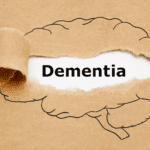Palliative care is a specialised medical approach designed to provide comprehensive support to individuals facing serious illnesses.
Despite its critical role in improving the quality of life for patients and their families, there are several misconceptions surrounding palliative care that can hinder its adoption and effectiveness.
In this article, we debunk five common palliative care myths to shed light on the importance and benefits of this essential healthcare practice.
Myth 1: Palliative Care is Only for End-of-Life Patients
One of the most persistent misconceptions about palliative care is that it is exclusively reserved for patients who are in the final stages of their life. In reality, palliative care can be initiated at any point during a serious illness diagnosis, regardless of the prognosis.
It focuses on managing symptoms, providing emotional and psychological support, and enhancing the overall well-being of the patient.
By starting palliative care earlier in the disease trajectory, patients can experience improved symptom management and a better quality of life.
Myth 2: Palliative Care is the Same as Hospice Care
Palliative care and hospice care are related but distinct concepts. While both aim to improve the well-being of patients with serious illnesses, palliative care is not synonymous with hospice care.
Palliative care can be provided alongside curative treatments, whereas hospice care is typically provided when curative treatments are no longer effective or desired.
Palliative care is focused on symptom management, communication, and emotional support, whereas hospice care is primarily intended for those with a prognosis of six months or less to live.
Myth 3: Palliative Care Means Giving Up Hope
Another misconception is that seeking palliative care means abandoning hope for a cure. On the contrary, palliative care focuses on enhancing the patient’s quality of life and ensuring they have the support they need to navigate their illness.
It doesn’t preclude pursuing curative treatments if they are available and appropriate. Palliative care professionals work closely with the patient and their medical team to develop a comprehensive care plan that aligns with the patient’s goals and preferences.
Myth 4: Palliative Care is Only About Pain Management
While pain management is an essential aspect of palliative care, it is far from its sole focus. Palliative care encompasses a holistic approach to care that addresses physical symptoms, psychological distress, emotional well-being, spiritual concerns, and social support.
Palliative care teams, which often include doctors, nurses, social workers, psychologists, and other specialists, collaborate to provide a comprehensive and individualised care plan that meets the unique needs of each patient.
Myth 5: Palliative Care is Expensive and Inaccessible
Contrary to popular belief, palliative care is not necessarily cost-prohibitive or inaccessible. Many healthcare institutions offer palliative care services, and these services are often covered by insurance, including Medicare and Medicaid.
Additionally, palliative care can be provided in various settings, including hospitals, outpatient clinics, and even at home. Access to palliative care is continually growing, and individuals should inquire about available options if they or their loved ones require support.
Complete Homecare 24
We offer a large range of services at Complete Homecare 24, including palliative care. Through our in-home care, we want to make sure that our patients feel heard, seen and cared for. Every patient has a unique care plan in place so that the person providing care can comprehend their specific requirements. To keep up to date, check out our Facebook and Instagram.





